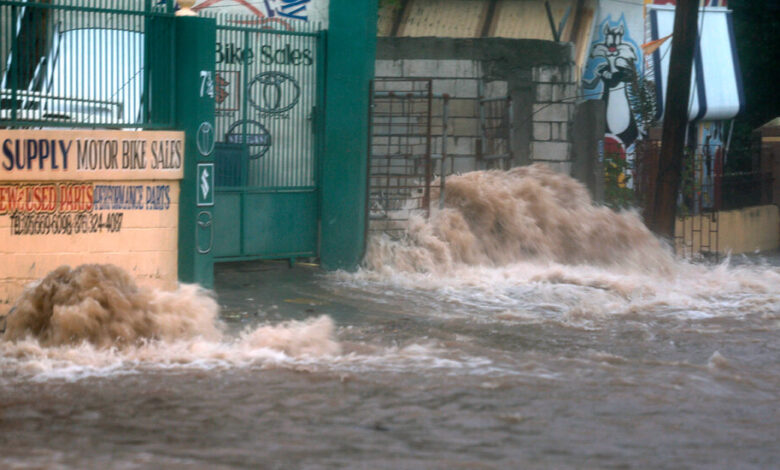Hurricane Beryl, a Category 4 storm, is moving rapidly toward Mexico: Live updates

Relief efforts were underway in New York City’s Caribbean community on Wednesday as residents watched Hurricane Beryl’s path with anxiety and grief.
At least seven people have died as a result of the storm in the southeastern Caribbean, leaving thousands without power. By Wednesday afternoon, Beryl had weakened from a Category 5 storm to a Category 4 storm as it passed south of Jamaica, bringing strong winds and heavy rains that caused flooding across the island.
In Brooklyn’s Little Caribbean neighborhood, people with family and friends in Jamaica are closely monitoring the storm’s progress.
Nadine Ducille, a chef at Jamaican Caribbean Vibes Restaurant and Bakery on Nostrand Avenue, said she has to call her family every few hours.
“So far, my family is fine, they are prepared,” said Ducille, 50. “They are just waiting to see what happens.”
Down the street at Mozeal Botanica, a store that sells religious statues and candles, Grace Clark, an employee there, said she reminded her children in Portland Parish, Jamaica, to fill their water tanks with clean water and charge their cellphones in case the power goes out.
“I got down on my knees and prayed for everyone to make a covenant,” said Ms. Clark, 50.
Eugene Pursoo, president of the nonprofit group Caribbean Diaspora United, was born in Grenada, An island nation devastated by a storm this week. He said a relative of his brother’s wife died when the storm prevented him from flying to the United States, where he was scheduled for emergency surgery.
Mr Pursoo, who previously served as Grenada’s representative to the United Nations, said he was concerned about the long-term impact that Hurricane Beryl’s winds and rains would have on the country’s crops and economy.
“It’s sad because we’re dealing with a fragile economy, and whenever we have devastation like this, usually we don’t have money,” Pursoo said. “I know families are in dire straits when these things happen.”
He has lived through such a disaster himself: Hurricane Janet, which devastated Grenada when he was a child in 1955, destroying homes and wiping out crops. Climate change has made extreme weather events more common in the region, experts say, and Pursoo says the Caribbean-American community knows how to cope.
“What I love about the Caribbean and the people here is that when there is a strike like this, we come together,” he said.
Leonie Ward, a secretary at Lenox Road Baptist Church in Little Caribbean, said Beryl was reminiscent of major hurricanes from the 1980s and early 2000s.
“I can’t say we’re used to this, but we’ve had Hurricane Gilbert and Hurricane Ivan,” she said. “Because of the scale of it, we understand what can happen.”
Dr. Trevor Dixon, founder of the JAHJAH Foundation, a non-profit that provides medical personnel after emergencies in Jamaica, was born on the island and traveled there to provide medical assistance after Hurricane Ivan in 2004. He said his father called him at the time, pleading for help.
On Wednesday, Dr. Dixon said he was “exhausted and worried” as he watched Beryl after a night shift at Jacobi Medical Center in the Bronx, where he works.
“I worked last night, but I’m still here, ready to go,” Dr. Dixon said. “You can’t sleep much because you’re stressed.”
He is scheduled to fly to Jamaica early next week with several other volunteers. Dr Dixon said standing water could cause serious health problems after the storm, by creating breeding grounds for mosquitoes and leading to contaminated drinking water.
As soon as he woke up Wednesday morning, Mr. Pursoo said he began reaching out to leaders in the Caribbean community in New York to begin organizing a relief effort. His biggest hurdle, he said, was finding a meeting space large enough to accommodate the 400 or 500 people he expected to arrive.
“We are the ones who always respond to the needs of our family and friends back home,” said Pursoo. “Whenever a disaster happens, we are very enthusiastic to help in any way we can.”


